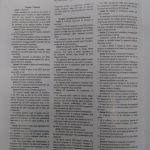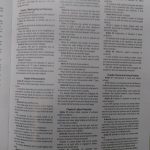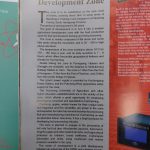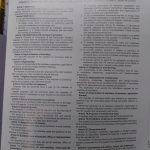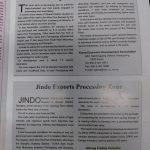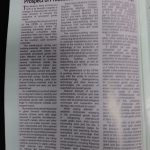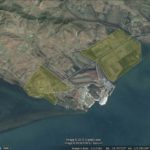Pictured above (Google Earth): The approximate locations of the Waudo and Jindo Export Processing Zones
Economic development parks in the DPRK are booming recently.
The city of Nampho is conducting processing trade by relying on the bases in Jindo and Wau Islet, taking advantage of its favourable economic and geographical conditions.
As a gate city on the coast of the West Sea of Korea, the industrial city has an international port.
The city, situated on the lower reaches of the Taedong River, boasts metallurgical, machine building, glass-making industries, and lead and zinc refi ning, silk fabrics and shipbuilding bases.
It has the country’s biggest salt works and a fishing station, a fishing implements manufacturing factory and a refrigerating plant.
The Port of Nampho, the biggest of its kind in the western part of the country, is at the northern shore of the Taedong’s entrance to the sea. The water is deep, the port itself is far inside the estuary of the Taedong River and the dams of the West Sea Barrage stand high, assuring safe navigation by ships.
There are around ten major berths and crane ships, loading bridges and conveyor belts.
Wau Islet off the port is one of the famous tourist spots.
The port is linked with over a hundred foreign countries and regions for commercial trade.
Jindo Processing Trade Zone
The zone aims at producing various kinds of light industry and chemical goods made from duty-free raw materials for export.
Cooperation period: 50 years
Project plan: The coverage of the zone is about 1.8 sq km. By taking advantages of the Port of Nampho nearby and tens of years of development of the machine-building, electronical and light industries in Nampho, it processes various goods and exports them. Enterprises are admitted to it on the principle of conserving the environment and saving energy. It strives to develop new products and industrial fields, realize technical transfer with other countries and thus contribute to revitalizing the domestic industry. It is also making efforts to develop into a processing trade and bonded trade area.
Waudo Processing Trade Zone
The zone aims at developing into an intensive processing trade zone by introducing advanced development and operation mode and by placing stress on export-oriented processing and assembling.
Cooperation period: 50 years
Gross Investment: About USD 100,000,000
Project plan: The zone covers an area of about 1.5 sq km. By utilizing its favourable conditions, it puts main emphasis on bonded processing, processing to order, barter trade and other types of export-oriented processing industry.
It aims to develop into a comprehensive zone with financial, tourist, real estate and foodstuff industry bases in the areas around the port and the scenic area around the West Sea Barrage.
Cooperation mode: Joint venture between corporate bodies of the DPRK and foreign investors or wholly foreign-owned enterprises.
Location: Some parts of Ryongnam-ri, Waudo District by the estuary of the Taedong River southwest of the city.
Infrastructure condition: Only 50km away from Pyongyang and a few kilometres between the port, the biggest international port in the country, and the railway station.
From the port it is 330km to Dalian, 332km to Weihai, Shandong, 930km to Shanghai and 695km to Tianjin, China, and 1 575km to Chinese Taipei. The Youth Hero Road between Pyongyang and Nampho facilitates the few scores of kilometres of travel to the Pyongyang International Airport. These all provide favourable conditions for domestic marine transport and entry and exit of foreign personnel, materials and funds.
A 600,000kW-capacity power station and 10,000kW-capacity tidal power station are intended to be built near Kwangnyang Bay beside the West Sea Barrage. The Taedong fully guarantees water supply.
The site was formerly occupied by a salt farm, so problem of removing structures does not arise. The area is 40m above sea level and flat.
National Economic Development Guidance Bureau, DPRK Ministry of External Economic Relations
Add: Taedonggang District, Pyongyang, DPR Korea
Tel: 0085-02-381-5912
Fax: 0085-02-381-5889
E-mail: [email protected]
